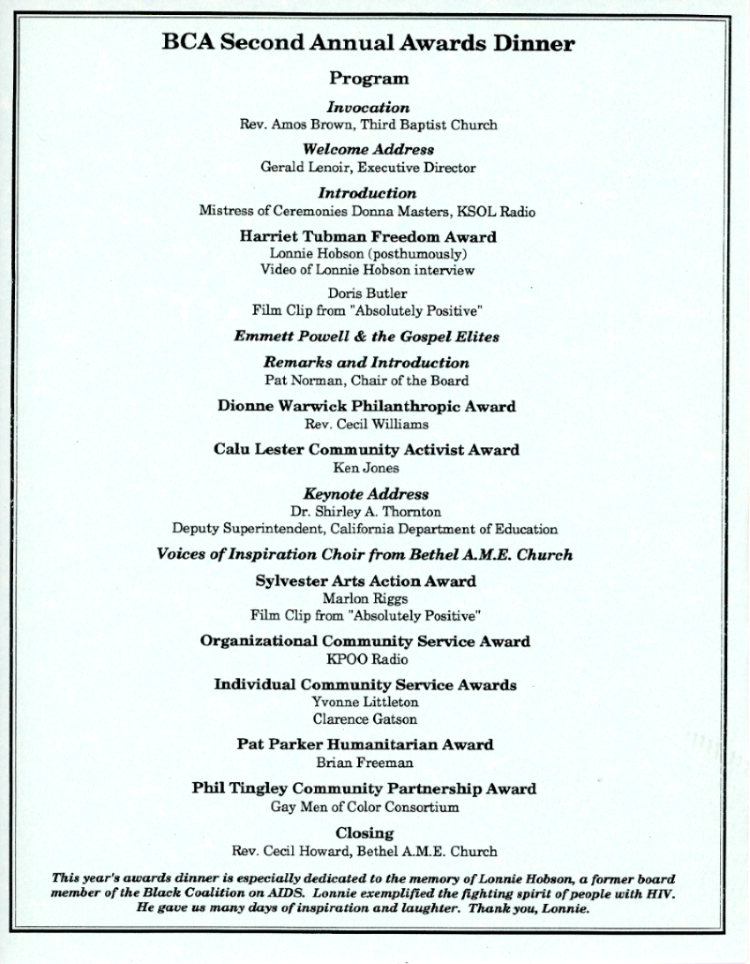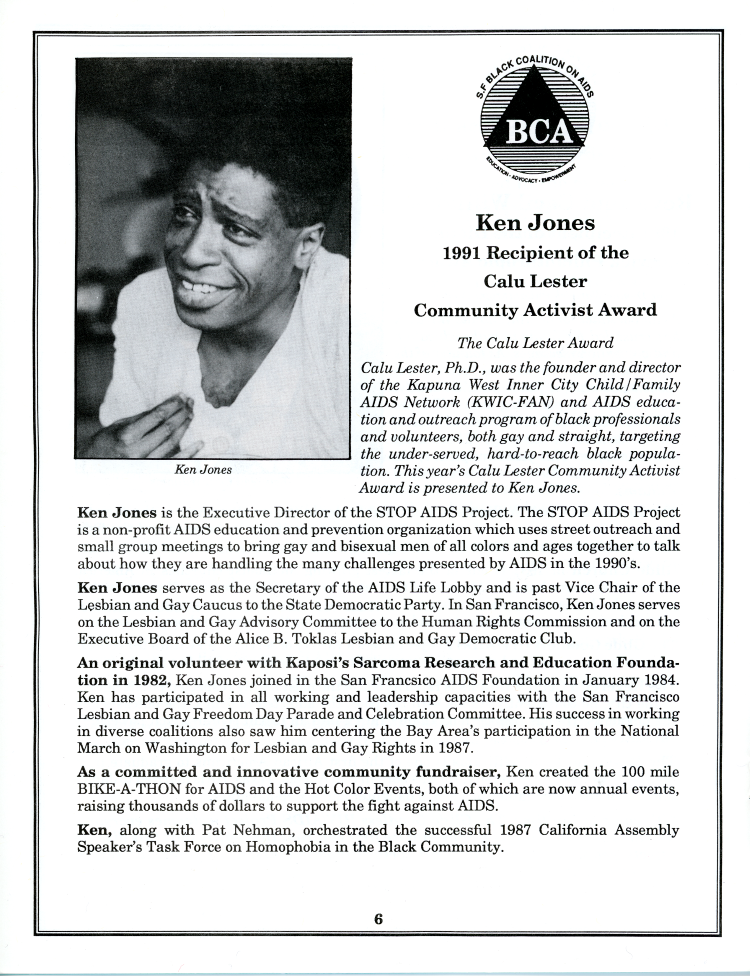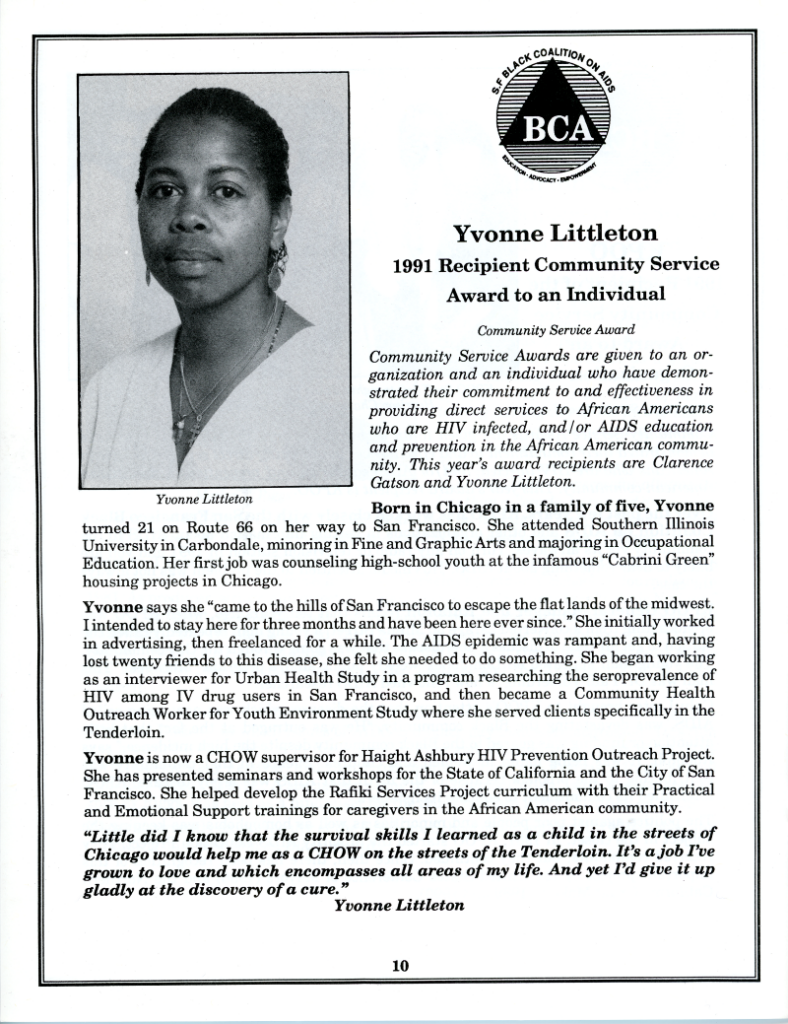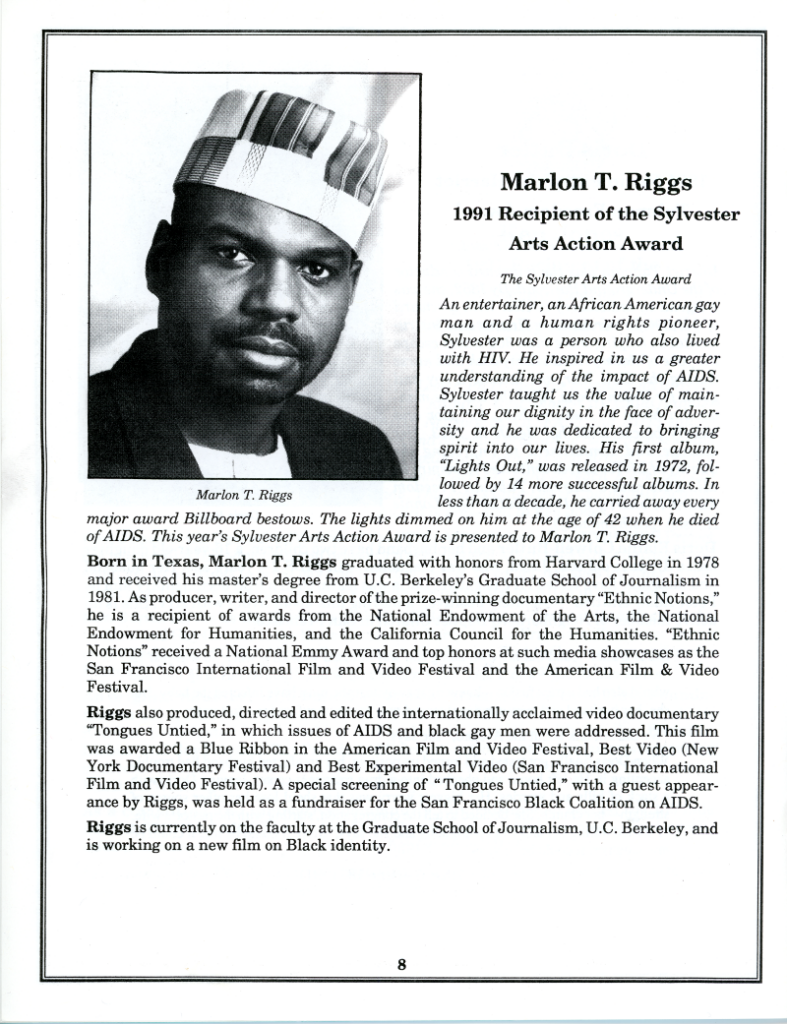The Black Coalition on AIDS (BCA) records are among the AIDS community-based organizations records (MSS 98-49) housed with the UCSF Archives and Special Collections. These records were assembled as part of the UCSF AIDS History Project, acquired with the goal of documenting the beginning of the AIDS epidemic and the San Francisco community response to it.
The Black Coalition on AIDS was established in 1986 to address the needs of the African American community in the early years of the AIDS epidemic and “to ensure Black people would receive appropriate services and be adequately represented in policy decisions.” It is still active today and was renamed the Rafiki Coalition for Health and Wellness in 2015 to reflect its expanded health education and health support services.
The Black Coalition on AIDS (BCA) records housed with us include meeting minutes, handwritten notes, programs from their first two annual awards dinners, newsletters, position papers, and proposals.
The honorees featured in the annual awards dinner programs for the BCA Second Annual Awards Dinner in 1991, captured my interest. The event highlighted the achievements of African American activists from the Bay Area and since February is Black History Month, it seemed timely and fitting to share a bit of information about some of the celebrated individuals.

Ken Jones received the Calu Lester Community Activist Award for his work as the Executive Director of STOP AIDS Project, Secretary of the AIDS Life Lobby, Vice Chair of the Lesbian and Gay Caucus to the State Democratic Party, and the founder of BIKE-A-THON for AIDS among many accomplishments. Jones was a veteran of the Vietnam War. He went on to work on police reform issues in response to the 1991 Rodney King beating and in 2011, he served on the citizen review board of the BART Police Department following the BART police killing of Oscar Grant. Jones passed away last year.

Yvonne Littleton received the Individual Community Service Award for her community health outreach work for the Haight Ashbury HIV Prevention Outreach Project. In addition to her public health work and background, Littleton trained as an artist. She was one of the 7 muralists who painted the Maestrapeace Mural on the Women’s Building in the Mission District in 1994. She also worked as a commercial artist and a stage and lighting designer.

The video artist, poet, activist, and educator, Marlon Riggs received the Sylvester Arts Action Award. I was first introduced to Riggs’s work while I was working at the San Francisco Museum of Modern Art Archives. In 1992, Riggs’s Affirmations won the 2nd Society for the Encouragement of Contemporary Art Video Award. His works can be found in the collections of the Museum of Art Museum and the Whitney Museum of American Art and in recent years, several arts organizations have mounted exhibitions honoring him and his work:
- Tongues Untied at the Museum of Contemporary Art in 2015
- Race, Sex & Cinema: The World of Marlon Riggs at the Brooklyn Academy of Music in 2019
- No Regrets: A Celebration of Marlon Riggs at the UC Berkeley Art Museum and Pacific Film Archive in 2019
- More Life at the David Zwirner gallery in 2021
Last year, the Criterion Collection, which had in recent years come under some scrutiny for its dearth of African-American directors, released the box set of his works, The Signifyin’ Works of Marlon Riggs.
Riggs died in 1994 at the age of 37 from AIDS.

Archival records function as time capsules and allow you a glimpse into a specific moment in time and place. And how one document, an event program, can be an introduction to people and places, inviting you to move them beyond just the records. I love this about my job.
